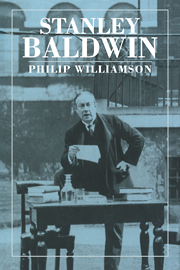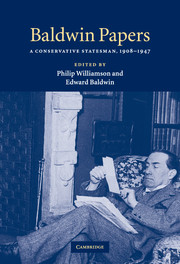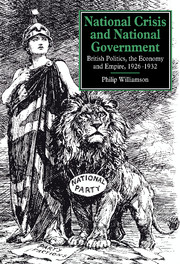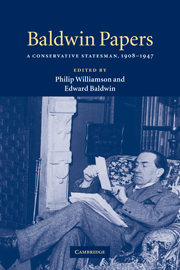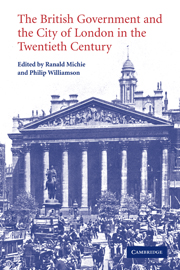Stanley Baldwin
Conservative Leadership and National Values
£44.99
- Author: Philip Williamson, University of Durham
- Date Published: May 2007
- availability: Available
- format: Paperback
- isbn: 9780521438124
£
44.99
Paperback
Other available formats:
Hardback
Looking for an inspection copy?
This title is not currently available on inspection
-
Stanley Baldwin (1867–1947) is one of the most significant modern British politicians, but also one of the most controversial and puzzling. As Conservative leader and three times prime minister, Baldwin presided over the beginning of his party's long twentieth-century dominance. He did so in new and difficult conditions: the onset of modern democratic politics, the rise of Labour, chronic economic depression, the General Strike, persistent newspaper attacks, imperial discontent, the Abdication, and the threats from Mussolini and Hitler. This book provides an understanding of Baldwin's career, including a serious analysis of the moral and intellectual influences of his early life. Its main concerns are the investigation of a Conservative mind, and its communication with the various audiences that constituted the political nation. This is not a conventional biography, but rather an examination of the nature of political leadership, Conservative politics and 'national values'.
Read more- A full study of Baldwin concentrating on Baldwin's ideology and political leadership
- Charts some of the most important decades of the twentieth century in Britain, embracing such topics as the rise of Labour, the General Strike, the Abdication, and the rise of Mussolini and Hitler
- Written by one of the most outstanding younger scholars in Britain, whose publications include National Crisis and National Government (1992) and an edition of Baldwin's letters
Reviews & endorsements
'Williamson's is the best book on Baldwin yet … He deserves all possible credit for the diligence of his research, the breadth of his vision and the rigour of his analysis.' The Times Literary Supplement
See more reviews'… a masterpiece of craftsmanship, insight and persuasion … the best book on Baldwin … Williamson speaks with unrivalled authority … of general importance about politics in modern societies.' The Spectator
'Williamson argues his case convincingly, with a superb mastery of the primary sources … His … study puts the three-times premier back at centre-stage, as the most important politician in interwar Britain.' History Today
'Baldwin is the best book yet written about its subject.' The Times
'… outstanding …' Kenneth O Morgan, The Independent
'… ambitious … Williamson fulfils his intention to demonstrate a more productive method of studying a politician's career than is usually supplied by the standard life.' London Review of Books
'… a valuable addition to the literature on pre-1945 politics.' Anthony Howard, New Statesman
'Philip Williamson['s] … meticulously researched and thoughtful work … contains many insights and fascinating revelations.' Ben Pimlott, The Guardian
Customer reviews
Not yet reviewed
Be the first to review
Review was not posted due to profanity
×Product details
- Date Published: May 2007
- format: Paperback
- isbn: 9780521438124
- length: 408 pages
- dimensions: 233 x 156 x 22 mm
- weight: 0.568kg
- contains: 15 b/w illus. 4 tables
- availability: Available
Table of Contents
Introduction: the historical problem
1. Public career
2. Political leadership
3. Influences: business and ethics
4. Influences: community and service
5. Purposes and methods
6. Capitalism and industrial relations
7. Democracy and public values
8. Country and empire
9. Soul and providence
10. Armaments and anti-totalitarianism
Conclusion.
Sorry, this resource is locked
Please register or sign in to request access. If you are having problems accessing these resources please email lecturers@cambridge.org
Register Sign in» Proceed
You are now leaving the Cambridge University Press website. Your eBook purchase and download will be completed by our partner www.ebooks.com. Please see the permission section of the www.ebooks.com catalogue page for details of the print & copy limits on our eBooks.
Continue ×Are you sure you want to delete your account?
This cannot be undone.
Thank you for your feedback which will help us improve our service.
If you requested a response, we will make sure to get back to you shortly.
×
